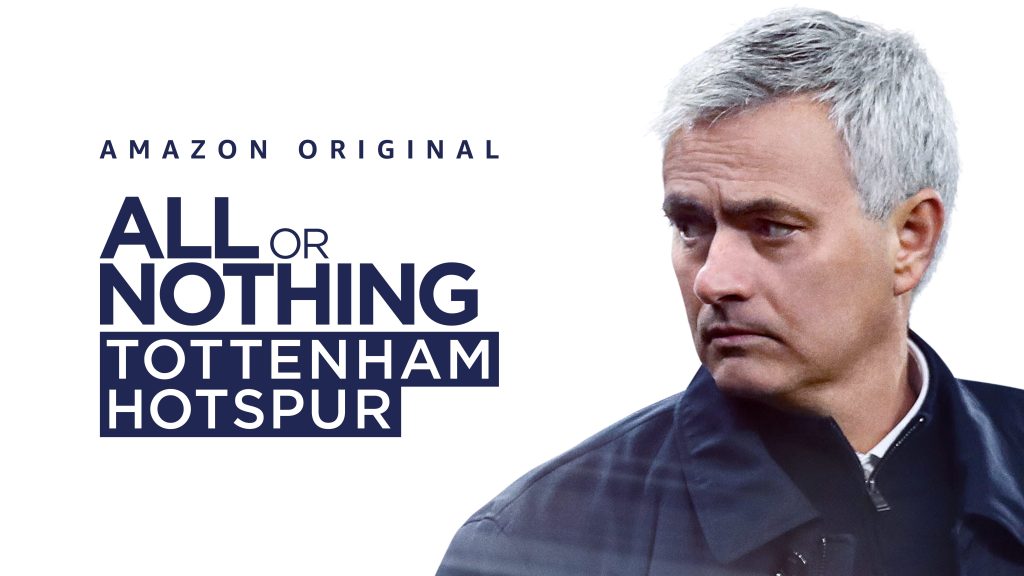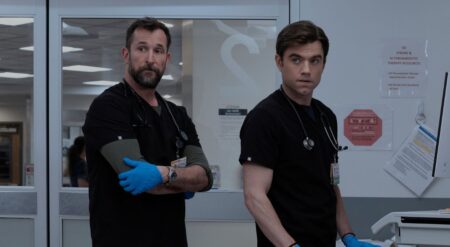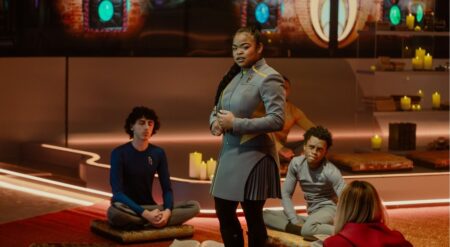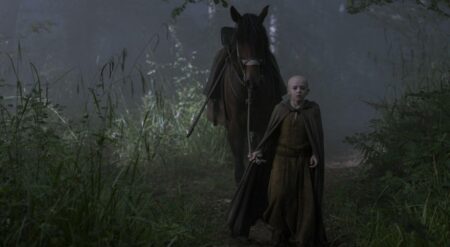
All or Nothing: Tottenham Hotspur is a documentary series broadcast on Amazon Prime. It is the latest in the All or Nothing franchise, documentaries that follow a certain sports team throughout the entirety of a season. The documentary follows the Tottenham Hotspur football team, known colloquially as Spurs. The fly on the wall show covers the North London club in the 2019/20 season, in the aftermath of their loss to Liverpool in their first-ever Champions League final. The major plot feature of the series, and what the first episode depicts, is the dismissal of long time manager Mauricio Pochettino and his replacement José Mourinho.
The plot of the series is peculiarly paced, as the first couple of months pass by in a fast montage of misery. The entirety of Pochettino’s reign as head coach within the club for that season goes past incredibly quickly, with little insight into the tensions of inner conflict are only implied after his firing and chairman Daniel Levy appointing Mourinho. It’s an interesting starting point as it signals the start of a new era, but there may have been a more poignant feeling of closure for Tottenham fans to see more of their long-standing leader. It is also possible that this decision was made to protect his reputation and legacy, so they can view his tenure with fondness instead of disappointment.
Mourinho within the footballing world is a celebrity, and if there is one thing he knows how to do is perform. The celebrity reputation is clearly relished by the documentary makers, as much of All or Nothing: Tottenham Hotspur feels like the José Mourinho show instead. A lot the series presents him as the centre of attention and the most famous figure at the club. Several of the interviews with him or the people around him will comment on his huge success and his ability to win trophies, inflating his ego at every turn.
Something that is presented well throughout the series is Mourinho’s tactical acumen. His experience as a strategist is clear from his lectures and analysis of opponents and his own players. A personal favourite scene is before Tottenham are due to play a team called Wolverhampton Wanderers (Wolves for short). Mourinho rattles off names in the opposing side, giving them a few word descriptions. Partnered with this is several short shots of those players in action, smashing into other players or blitzing past defenders. This is a very exciting method to fuse visual and audio, saving time while keeping the audience invested.
Another factor of Mourinho’s personality that is highlighted from the start is his man-management. This means his ability to encourage individual players is very high. In the first few episodes, he has meetings with select players and changes how he speaks with each one. With Harry Kane, the star striker, he promises to try and elevate his career and global standing. With Dele Alli, a rising star whose trajectory has dropped, he talks of how little time you have as a footballer. For Danny Rose, a player who lost his place in the team, he’s harsh and stern. These switches show how complicated and intelligent the man is. It hints at just how many footballer players Mourinho has managed, and how he has learned how unique each one is.
The filmmakers also successfully utilize the football players themselves to tell the story of the season. Often, a player’s specific story or scene is edited into the episode, before they do something within a game later on. One of the clauses within the contracts all Tottenham players sign is that every first-team player must involve themselves within the community itself. These are shown to be an assortment of tasks, from school visits to helping food banks and attending care homes to see elderly residents. The documentary helps ground the players by tapping into their pasts and who they are outside of the shirt, and them helping in this way is a nice example of that. One player that stuck out for me in that regard was Frenchman Serge Aurier. During his interviews, he reminisces about growing up in the roughest part of Paris. It is a stark reminder that many footballers come from deep poverty, adding a relatability to people who are often considered superstars.

The biggest issue hanging over All or Nothing: Tottenham Hotspur is that there are moments where it doesn’t feel truly authentic. Mourinho is aware of the cameras at all times, and it’s hard to know how much of his true self is being revealed. The biggest reason why that feeling can be so jarring is the editing. In matches and for the majority of the episodes, this is done well. But an example of when it isn’t is when the manager is in his office, with pundits on Sky Sports discussing him on the TV on the wall. The segment ends with Mourinho turning the TV off, awkwardly telling the presenters to “fuck off.” But the hard cut in the middle of the scene is possibly suggesting that these are two separate pieces of reality stitched together as opposed to it being natural.
In addition, record signing Tanguy Ndombele’s entire saga is stuffed into the final episode. The midfielder struggles during the season, but he is barely featured on screen until this last episode. Much of his poor form isn’t visible, nor is the manager’s comments on him in the middle of the campaign. Mourinho was scathing towards him in interviews, which is a side to him that has been visible to the public in other tenures. Yet it does not appear as often inside the documentary.
The fights within the dressing room and on the pitch do seem genuine and are brilliant to watch, as well as Mourinho getting angrier as Spurs limp through their matches. In those moments the show feels to be most representative of reality, as well as in the football matches themselves.
All of Nothing: Tottenham Hotspur is the second football documentary series to be released after the Coronavirus epidemic halted the Premier League, sport, England, and the planet, and episode 8 encapsulates that period. The seriousness of the situation is built as the episode progresses, showing the initial reports of infections up to the total shutdown before the league continues in episode 9. The uncertainty within the club is fascinating to watch, with Levy and his staff getting new updates by the second.
The positive actions the club made, such as lending the use of their stadium to hospital staff and patients, are shown within the episode, giving insight into what the club was doing during that period. A very resonating image from the series is Mourinho stood in front of a huge bank of screens, each one a different player as they take part in a training session through Zoom.
It should be mentioned however that negative stories that surrounded the club during the shutdown, such as staff pay cuts and both players and coaching staff breaching lockdown rules, are omitted from the programme.
The series is narrated by actor and Londoner, Tom Hardy. His voice is well-suited as the narration, he keeps a formal, emotionless tone throughout his voice-overs. The use of a celebrity narration has been used by Amazon’s All or Nothing series before, such as Sir Ben Kingsley in All or Nothing: Manchester City. They have incredibly iconic voices that make seemingly try lines feel epic.
During the matches themselves, the actual match commentators fade in and out, but the echo added to their monologues results in them feeling incredibly dynamic.
The views of Tottenham fans, pundits, and other voices are played over scenes before and after matches. Unfortunately, these are mostly uninteresting and confusing to listen to. This is mainly because the audience is unaware of who is actually talking. It would be appreciated if captions revealed the owners of the voices were. A few of the accents and tones are recognizable, such as Spurs legend Glenn Hoddle, but it is hard to know whether those talking are supporters or ex-footballers or podcasters.
The editing of the documentary is excellent, in particular during the football matches themselves. The different angles are cut in a way that maintains fluidity and excitement when the players are bursting forwards. A mixture of shaky-cam movement added occasionally is often due to the camera operators trying to keep the sprinting footballer in the centre of the shot. All or Nothing: Tottenham Hotspur expertly presents the footage of the game in a much more cinematic way than it may seem within the ground or on television. There are shots that the documentary cameras could capture that the original broadcasts could not, making some of them seem exclusive. When players collide or land hard on the ground after a slide tackle, you almost feel the impact.
The clips of the matches vary in length, often depending on the tone of the particular episode or act. For example, during the times when Spurs are in a bad patch of form, the goals move past at a quick pace as they are narrated over. But as the season winds down and the matches get more important, they are extended, often reserved as a climax for the episode. One feature that is used twice is the camera focusing on a player as they take a shot, but not moving to show the football’s destination. Instead, the outcome is depicted in the facial expressions of the player. During a penalty shootout, this is a fantastic way of tapping into the emotional core of football.
All or Nothing: Tottenham Hotspur is a beautifully-shot documentary with glaring issues. The football matches are brilliant to relive, and the dressing room conversations are truly fascinating. Mourinho is an enigmatic figure and this is an in-depth exploration of someone who has been in the public eye for so long. The character-driven stories relive the soul and history of the institution. However, with the club spending, most of the season fighting for fifth place does imply smaller stakes than what is found in other All or Nothing series.
The series is an unusual insight into how a football club is run because it doesn’t always feel real. The strange editing at times, the sometimes awkward ego-stroking between Levy and Mourinho, certain topics being avoided or collated into one episode, they all result in a bizarre sensation when watching. It feels like scripted reality when off the pitch. The negative factors made it difficult for me to truly engage with much of the documentary.
All or Nothing: Tottenham Hotspur is available on Amazon Prime.
All or Nothing: Tottenham Hotspur
-
Rating - 6.5/106.5/10
TL;DR
All or Nothing: Tottenham Hotspur is a beautifully-shot documentary with glaring issues. The football matches are brilliant to relive, and the dressing room conversations are truly fascinating. Mourinho is an enigmatic figure and this is an in-depth exploration of someone who has been in the public eye for so long. The character-driven stories relive the soul and history of the institution. However, with the club spending, most of the season fighting for fifth place does imply smaller stakes than what is found in other All or Nothing series.






